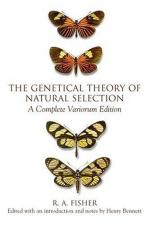|
This section contains 5,009 words (approx. 17 pages at 300 words per page) |

|
Ronald Aylmer Fisher was a titan who bestrode two signature disciplines of twentieth-century science: population genetics (or the mathematical theory of evolution), of which he was a cofounder and principal architect, and mathematical statistics, in which he played a pivotal role. On the one hand, he led a revolution that replaced the Bayesian approach of inverse probability with one based solely on direct probabilities (i.e., probabilities of outcomes conditional on hypotheses). On the other hand, he unequivocally rejected the conception of statistics as decision making under uncertainty that his own work inspired. This rift in the new statistical orthodoxy has never healed. Thus, Fisher's conception of probability was at once frequentist and epistemic, his approach to statistics at once inferential and non-Bayesian, and the chief question his life's work poses is whether a consistent theory can be built along these lines...
|
This section contains 5,009 words (approx. 17 pages at 300 words per page) |

|


